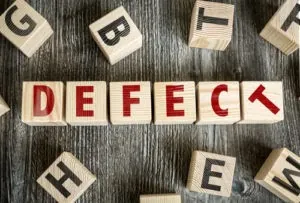Wrongful Death Lawsuits And Products Liability Laws: What The Consumer Needs To Know
Dealing with the Aftermath of a Defective Product
Product defects are not uncommon in an economy built on mass-production and high-profit margins. Most of these defects are caught quickly and do not cause massive damage or injury to the consumer. However, there are cases where a product does not or cannot perform in the way that it was designed to, and people suffer severe injury and even death as a result. If the absolute worst happens and someone dies as a result of a defective product, their family can file a wrongful death suit against the manufacturer, retailer, or distributor. Here is what you need to know about wrongful death suits that stem from a products liability failure.
Which Products Can Cause Death?
When it comes to goods that carry a risk of serious injury or death when they do not work properly, most people think of big items like cars, tractors, or and other vehicles. And while it is true that a defect with these products can cause death, they are certainly not the only ones. Other common equipment like power tools, chainsaws, and lawnmowers may have many moving parts with sharp edges and spinning blades that can be very dangerous if they malfunction. And even with the most common household products, things can go wrong. Electronic items can short and spark, causing electrocution and even fires. Kids are especially vulnerable, as they are not mature enough to recognize many dangers. Toys and other basic household goods can be choking hazards. From medical products to toasters to tires, there is no specific list of products that can cause death.
Types of Product Liability
There are three theories of liability that a plaintiff can assert under the law. The first is that the product is inherently dangerous due to defective design. A good example of this is when car companies were in legal trouble for making SUVs prone to rolling over. The second is that the product developed a defect during the manufacturing process that the maker failed to correct, such as a poorly made seat belt in a car that fails to work on impact. The last has to do with the manufacturer’s duty to warn consumers about certain dangers, like not including a label on a children’s toy warning parents that there are small parts that can be choking hazards.
Filing A Wrongful Death Suit
Under Florida law, any party in the supply chain can be held liable for a defective product, from the manufacturer to the distributor to the retailer. When it comes to who can file a wrongful death suit, Florida gives the victim’s spouse, children, and parents the standing to sue the responsible parties. And what kind of compensation can the deceased person’s family ask for? Under the law the family can ask for any medical bills and funeral expenses accrued as a result of the product’s malfunction. In addition, they may also be entitled to damages for the loss of companionship and emotional suffering. Calculating these can be tricky, so be sure to contact an attorney to guide you through the process so that you can receive any and all damages that the law allows.
Contact A Pembroke Pines Products Liability Attorney About Your Defective Products Case Today!
Have your or a family member been injured or killed by a defective product? You may be facing mounting medical bills and find it difficult to work or perform everyday tasks as a result. Products liability laws are written to protect consumers and hold manufacturers and retailers liable when things go wrong. The skilled attorneys at Lawlor, White & Murphey represent clients injured or killed by defective products in Plantation, Pembroke Pines, Pompano Beach, Fort Lauderdale and throughout Florida. Call 954-525-2345 or fill out our online contact form to schedule a free consultation about your case. We have an office conveniently located at 2211 Davie Boulevard Fort Lauderdale, FL 33312, as well as offices in Pembroke Pines, Weston, Coconut Creek, Pompano Beach, and Plantation.
The articles on this blog are for informative purposes only and are no substitute for legal advice or an attorney-client relationship. If you are seeking legal advice, please contact our law firm directly.

